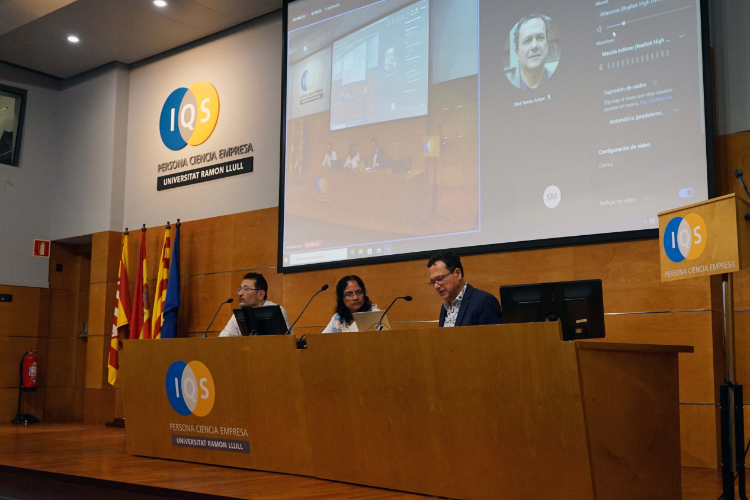Saras D. Sarasvathy, a professor with the Darden School of Business at the University of Virginia (USA), believes that education in countries like Spain tries to instil in students that the ideal is “not to take on risks, to finish university, and to get a job in a big company,” but it’s necessary to leave that notion behind and start “teaching entrepreneurship like we teach the sciences and other subjects.”

Saras D. Sarasvathy, a professor with the Darden School of Business at the University of Virginia (USA), believes that education in countries like Spain tries to instil in students that the ideal is “not to take on risks, to finish university, and to get a job in a big company,” but it’s necessary to leave that notion behind and start “teaching entrepreneurship like we teach the sciences and other subjects.”
Those were Sarasvathy's words during the conference entitled: “Entrepreneurship: Lessons and Experiences from India,” organized by IQS in collaboration with Casa Asia. Sarasvathy gave the conference after recently receiving the Global Award for Entrepreneurship Research for her pioneering work on corporate decision making and the entrepreneurial process. This award is the most important international recognition for entrepreneurial research and includes a 100,000 euro prize.
During her presentation, Sarasvathy criticised the fact that education in universities and business schools often requires students to make predictions about the future, for example, through business plans, and called on them to take advantage of their capacities to use existing resources and get the best from their surroundings to co-create solutions.
“The risk of a business plan is that you can believe in the predictions you have made. Instead, it should be about making the most of the sensitivity analysis which includes more than the plan itself. For a business plan to be useful it must be constantly evolving,” she claimed.
Sarasvathy, who founded five companies before dedicating herself to research and teaching, also tried to refute the idea that entrepreneurship requires having financial resources from professional investors. According to her data, 90% of companies backed by venture capital firms fail, compared to 50% of companies not backed by these firms. The key is that the latter group, by “doing things the hard way”, including the exchange of services and capital, manage to be more creative and co-create solutions together with partners that they have found along the way.
Asked about the adverse effects created by the new business models seen with large successful startups like AirBnB, Sarasvathy considered that startups should “try to impact the future of countries and societies, not only markets.” To make this a reality, she urged companies to try to formalize public-private partnerships to expand their products and services.
The Darden School of Business professor, who also holds the Jamuna Raghavan Chair in Entrepreneurship at the Indian Institute of Management in Bangalore (India), is a specialist in studying how expert entrepreneurs think and reach decisions. According to her, successful entrepreneurs are individuals who have created at least two companies and have between 10 to 15 years of experience in leading companies, the time an entrepreneur needs to experience successes and failures and thus to be able to draw lessons from them.
Sarasvathy recalled that in countries like India, entrepreneurship “is not an option but a necessity,” especially for women as they have less access to official education.
Sarasvathy’s conference was presented by India’s ambassador to Spain, Dinesh Patnaik, who noted that India is one of the best countries for entrepreneurship and that it is ranked number two worldwide in the number of companies created each year.










